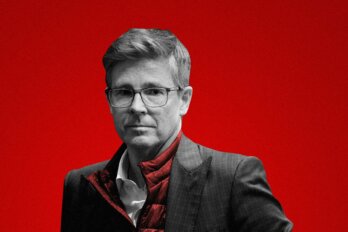
Last March, close to 300 attendees gathered at the Sheraton Centre in Toronto for the inaugural conference of the Usury-Free Association of North America. The group was launched this year to promote Islamic finance, an approach to banking, insurance, and investment that complies with sharia law’s ban on usury (charging interest), gambling, and excessive risk, allowing Muslims worldwide to manage their money according to their beliefs. Sheiks and entrepreneurs in headcloths, full beards, and prayer caps mingled with suit-clad, bespectacled bankers and bureaucrats; non-Muslims were welcome.
Ties between the two sides have grown increasingly close. In attendance were representatives from Canada’s Big Five banks and government banking regulators, who hope to broaden Islamic finance options in Canada. They want to attract investment from the oil-rich Arabs of the Persian Gulf, who have used Islamic finance in the past decade to finance projects worth billions of dollars. In seminars and over refreshments, participants discussed sharia methods: for example, Islamic banks issue interest-free mortgages by purchasing properties on buyers’ behalf and selling them back to the purchasers at a higher price, with repayment scheduled in fixed instalments. The Toronto institution UM Financial recently introduced a prepaid charge card in Canada, which offers Muslim clients the convenience of paying with plastic.
Islam has much to say about matters of commerce, partly as a result of its geography. Faced with the difficulties of farming the Arabian Peninsula’s deserts, Arabs in pre-Islamic times turned to trading. For centuries, they served as middlemen between Europe and Asia, before Portuguese explorer Vasco da Gama discovered a sea route between the two continents, at the end of the fifteenth century. The prophet Muhammed himself captained trade missions for his first wife, a wealthy merchant. Once his religion gained followers, traders consulted him on commercial practices. Some were forbidden, but those that were permitted formed the building blocks for today’s Islamic finance.
But sharia finance is more than an antiquated set of rules for bartering camels and dates, exhumed in response to the complex world of modern economics. It has resulted from centuries of debate among religious scholars about how to prevent financiers from succumbing to greed. Christianity and Judaism also frown on usury, but only if interest rates are deemed excessive—a far looser interpretation than that of Islam, which has seventy-three distinct definitions of the practice. So Islamic financiers often make money through profit-sharing arrangements with their clients, taking a prearranged cut of the income they help to generate. In theory, this makes it impossible for Islamic banks to profit when their clients do not.
By aligning financiers’ interests with those of their clients—and, crucially, by ensuring investments are linked to hard goods bought or sold—Islamic finance aims to keep bankers from engaging in market trading and speculation that can be detrimental to the wider economy. In other words, Islam’s core principles forbid many of the practices that caused the financial crisis that struck the US in 2007. Islamic finance is often touted as more than an opportunity to cash in; proponents boldly claim that it is a morally superior, crash-proof alternative to capitalism. But while its tenets may seem novel, its objectives are familiar: a just and fair economy, and a stable environment in which citizens can provide for themselves—the same conditions free market democracies are meant to preserve.
Of course, Islamic banks exist in the same economic climate as conventional ones, and must compete for customers. When that economy heats up and profits come readily, investors of all ideologies tend to take greater risks until a bubble inflates and then bursts. In the 2000s, the American mania for real estate spread to the Persian Gulf, and developers there built far more than they could sell. Their projects were often financed by Islamic investors who, much like their American counterparts, ignored the laws of supply and demand in favour of more ambitious projects and more lending. Dubai now boasts the world’s tallest (and perhaps emptiest) skyscraper, and a group of man-made resort islands in the shape of palm trees. The company that built them needed a government bailout in late 2009 to pay off its sharia-compliant loans.
For now, Islamic financial leaders are working to shore up their system before the next economic crisis. They are also eyeing new markets—hence the Sheraton gathering. Canada might prove promising, because its relatively strict financial regulations kept its banks out of serious trouble when the recent crisis hit. Tighter rules could reduce pressure on Islamic financiers to compromise their principles in a market where non-ideological competitors enjoy greater freedom. Then again, regulations sometimes fail, and no economic system—capitalist, Islamic, or otherwise—can be relied upon to keep human nature in check.
The Milky Way
Modernizing tradition versus traditionalizing the modern
Taking its name from the same Arabic root as “jihad,” ijtihad, a system of moral reasoning that applies Islamic principles to contemporary problems, functions in stark contrast to the literalist interpretations of Islam favoured by extremists. The Muslim Canadian Congress, among other progressive organizations, argues that Muslims “must look at the principles behind Quranic edicts” and consider “the Quran’s time-specific societal injunctions.” But even though public figures like Irshad Manji and Reza Aslan have touted ijtihad as a liberalizing force within Islam, conservative clerics have attempted to radicalize it. In 2007, Shaiekh ’Abd al-Muhsin al-’Obikan, an adviser to the Saudi Arabian Ministry of Justice, sparked outrage when he issued a fatwa requiring men to become “relatives” with their female co-workers (as coed work environments are forbidden by some schools of Islamic jurisprudence) by drinking their breast milk. “But not,” he added, “directly from the breast of the woman.”
—Tavish McGregor
This appeared in the January/February 2011 issue.





